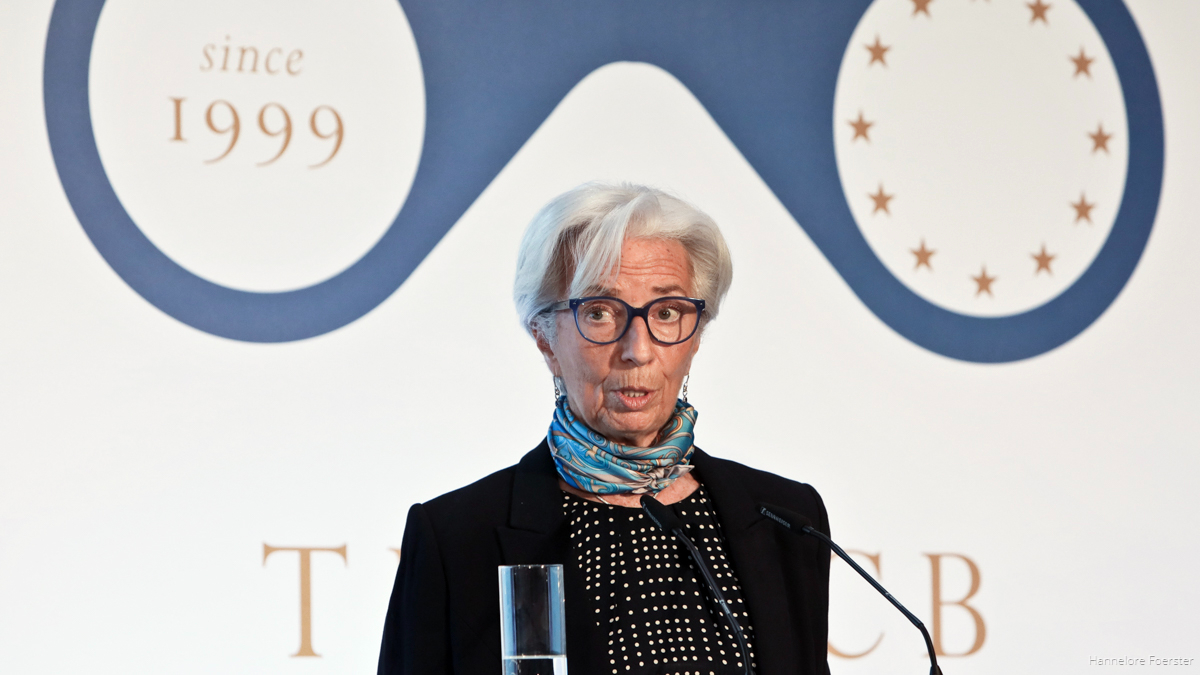Because the ECB is in a bit of trouble

The surge in inflation in 2022 has made it necessary to implement an unprecedented monetary tightening in the history of the Eurozone, which could lead to negative consequences, such as weakening demand for bank loans and a slowdown in consumption. The analysis by Davide Petrella, Portfolio Manager of Moneyfarm
The ECB finds itself having to deal with high and persistent inflation : after eight consecutive interest rate hikes, the 2% target is still a long way off and, as if that weren't enough, inflationary dynamics are highly uneven in the various countries of the Eurozone. After the latest 25 basis point increase decided in June, President Lagarde herself declared at the Sintra Forum that interest rate hikes will not stop unless there is a substantial change in the inflation outlook .
The ECB therefore seems intent on remaining "hawkish": at the moment a new increase of 25 basis points is certainly given at the next meeting on 27 July, but subsequent increases in the coming months cannot be ruled out, at least until inflation levels normalize , which is currently expected to return to around 2% in 2025 alone.
INFLATION ABOVE THE HISTORICAL AVERAGE
Current inflation levels are well above the historical average: looking at the last cycle of rate hikes, between 2005 and 2007, at the time the need for the tightening decided by President Trichet was a direct consequence of the significant expansion of the credit of the previous two years, which was starting to undermine the stability of prices, as well as the price of crude oil, significantly above expectations.
However, while inflation was only slightly above the 2% target then, the average inflation value was 8.4% in 2022 and an average value of 5.4% is expected for 2023. in both cases values well above the target.
THE CAUSES OF INFLATION, TODAY
Moreover, today the causes of inflation are different than in the past: the reasons for the sudden surge in prices are first of all the reopenings linked to the post-pandemic which, after months of restrictions, have caused a sudden increase in demand; the partial disintegration of supply chains and, above all, the shock suffered by energy prices following the Russian invasion of Ukraine contributed to exacerbate this dynamic.
The unevenness of inflation levels in the various countries of the Eurozone also complicates the picture: while Germany remains the "sick" of Europe, with an average increase in prices in the month of June equal to +6.4% compared to the same month last year, Spain recorded a +1.9% and Portugal a +3.4%. If therefore, on the one hand, the ECB's restrictive monetary policy could be functional to lowering the levels of inflation in Germany, on the other hand, for countries such as Spain and Portugal, new rate hikes might not be necessary.
THE DIFFICULTIES FOR THE ECB
After years of high monetary stimulus and negative interest rates, Lagarde is now managing a particularly complex situation: the surge in inflation in 2022 made it necessary to implement a restrictive monetary policy with unprecedented speed in the history of the 'Eurozone, which could lead to negative consequences, for example in terms of weakening demand for bank loans which, in turn, could cause a slowdown in consumption and growth in various sectors, from real estate to construction.
For the coming months, the scenario remains particularly uncertain and the ECB's moves will have to be based on reading the inflation and economic growth data. However, the fact that "inflation in the euro area is too high and will likely remain so for too long" means that the Governing Council of the ECB is ready to use every weapon at its disposal, within the limits of the mandate, to bring inflation levels back within the 2% target.
This is a machine translation from Italian language of a post published on Start Magazine at the URL https://www.startmag.it/economia/bce-inflazione-scenario-incerto/ on Sun, 16 Jul 2023 05:19:09 +0000.
